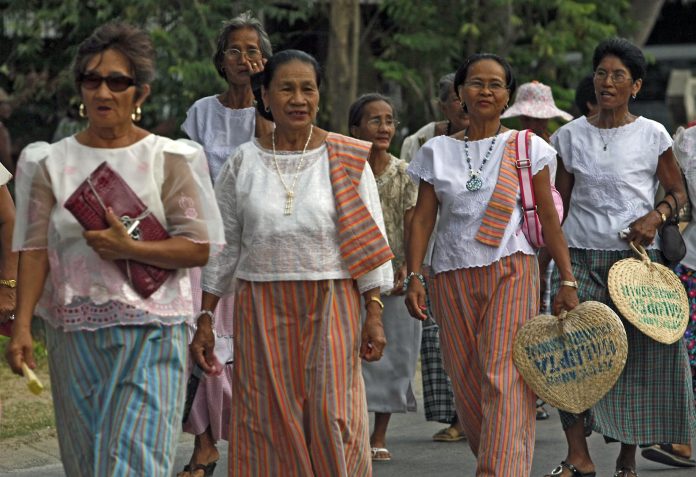Growing up in the land, hearing stories of animals, trees, spirit beings, and people from my grandmother have been a huge part of my childhood.
Though they may be somewhat far from my reality at that time, they for sure spoke of a reality at a certain period that has been passed down through generations.
I could still remember my grandmother’s silky, long, silver hair that smelled like coconut oil, her sagging skin that provided me such comfort, and her voice that is filled with wisdom accumulated through the years.
Wisdom personified as woman has been one of the most common themes across the Old and New Testaments. The book of Wisdom spoke of the interdependent relationship of the Woman Wisdom and God.
The Woman Wisdom (chapters 6-10) is presented as, like God, being sought by humankind for prosperity and victory, active in the act of protection, reconciliation and salvation of her people from their enemies, and present in the lives of peoples even across cultures (i.e., Hellenistic and Egyptian cultures).
But just like majority of the books in the Bible, the book of Wisdom of Solomon is a male-dominated text. Woman Wisdom has been mentioned having powerful role, but in the end, the one who rescues is not the Woman Wisdom but God.
Jesus also takes on the role of the Wisdom (Gk. sophia) by teaching in parables. One interesting parable is a short one that speaks of the Basileia (Gk. for kingdom but is feminine in gender) of the Heavens (Mt 13:33). “The kingdom of heaven is like yeast that a woman took and hid in three measures of flour until all of it was leavened.”
Leaven or yeast generally symbolizes a spreading nature of evil in the NT that corrupts the whole, but here is an exception, where Jesus used it to describe the Basileiaof the Heavens.
More than the redemption of the yeast from being a symbol of evilness, Jesus also redeems the woman in personifying the basileia to a woman baker (see Gospel of Thomas 96).
Woman being passive and subject of male dominance in the male-dominated culture, Jesus redeems the woman as an active agent of change, subversion, and therefore liberation of the people.
It is important to note that the woman took and hid yeast in the three measures of flour. One measure is equivalent to nearly three gallons which means that bread produced out of the three measures of flour with yeast, could feed a whole village.
This imagery implies hard work and exaggerated hospitality. Another theme present is the secrecy with the use of “hid” instead of “mix” in the Greek text (krypto). In this secrecy brings in a sense of subversiveness and resistance in the simple act of making bread that is enough to feed a whole village.
The social, cultural, and political realities of the time of Jesus under the colonial Roman Empire speaks of the suffering of the Jewish people. They don’t have their own land to till and produce food for themselves.
The colonial system makes the rich richer and the poor poorer. The people who have had enough were already beginning to resist against the oppressive Empire. The reason why bandits, robbers, and thieves were seen as a problem by the Roman Empire and therefore branded them as such and criminalized their acts of resistance and works of justice.
A simple act of feeding the hungry people has become an act of resistance. Though the yeast has been used as a symbol of spread of evil and corruption, Jesus used the same symbol to turn the tide, and teach the people about the wisdom of the Basileia of the Heavens, on the subversive power of exaggerated hospitality.
The voice of the Woman Wisdom in the male-dominated Bible may be small and rare, but it is there. We just need to carefully listen and hear her.
As Jesus has also demonstrated through the Gospels, the voice of the Wisdom, of Sophia, is not just in the holy scriptures, but is present in the stories and realities of the oppressed – the people and nature.
Let us own our agency in hearing them out and work for justice and peace. Jesus, Sophia commands us: Let anyone with ears listen!
Gospel reflection of Rev. Niza Joy Santiago of PCPR Europe for the 16th Sunday of Ordinary Time. Wis 12,13.16-19, Rom 8:26-27, Mt 13:24-43
Balik-Tanaw is a group blog of the Promotion of Church People’s Response (PCPR). The Lectionary Gospel reflection is an invitation for meditation, contemplation, and action.









